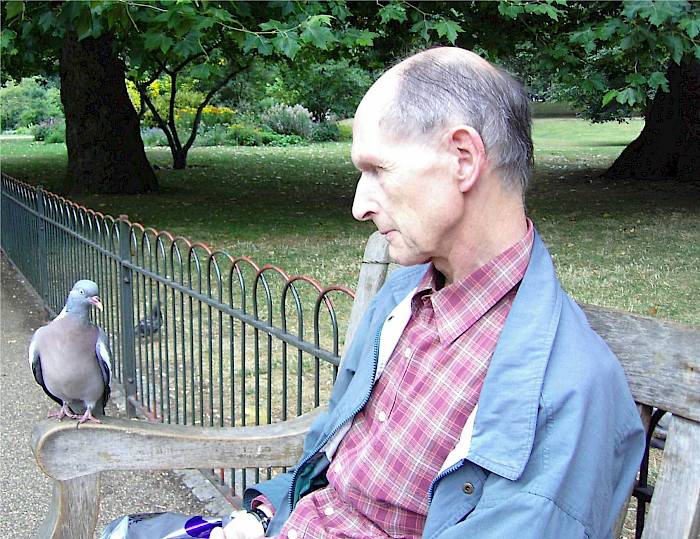According to estimates, on January 1, 2022, almost eight billion people populated our globe. How many more animals would it have been, from single-cell organisms to advanced mammals? And what about the question of mutual “understanding”?

From animal rights activists and vegans to hunters and butchers: one of the most difficult and complex questions people face is how to deal with creatures correctly, or at least in an ethical manner.
Pampering a tiny selection of pets, animals in zoos and circuses, industrial livestock farming, stressful animal testing: a "broad field" with few definitive answers.

What do you think this bird thinks of me? musicologist Peter Palmer seems to be wondering.
It was only in the 19th century that voices began to increase that conceded that the animal had an individual worth of its own. Arthur Schopenhauer deserves a place of honour. Thinkers like Albert Schweitzer, the theologian Eugen Drewermann or animal ethicists like Peter Singer may hold extreme positions, but they are nonetheless necessary admonishers in a human world that is constantly restricting the habitat of wild animals and exploiting "farm animals" more and more unscrupulously.
Also in Robert Musil‘s writings the animal is conspicuously present. The audiobook, “Nachlass zu Lebzeiten” (Posthumous Papers of a Living Author) goes in detail into both Musil’s “animal" texts as well as voices from the Old Testament to contemporary representatives of animal rights.

What "they" can do, I can do too: e.g. open the water tap with my own hands ...
Those persons must indeed be totally blind […..] who do not discern that the truly essential and fundamental part in man and beast is identically the same thing. That which distinguishes the one from the other does not lie in the primary and original principle, in the inner nature, in the kernel of the two phaenomena (this kernel being in both alike the Will of the individual); it is found in what is secondary, in the intellect, in the degree of perceptive capacity.
Arthur Schopenhauer:
Prize essay on The Basis of Morality (19,7)
(edited translation by Edward Brodrick Bullock, M.A., Cambridge.)
The animal plays a noticeable role in literature, in the visual arts and even in music. And often with a humorous twist. Aesthetic presence is one thing.
On the other hand, the question of how to treat our non-human fellow creatures appropriately is more serious than ever.